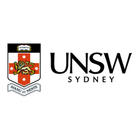Language is defined as the study of communication whether written or oral and there are many degree programmes relating to this particular study of field. Although many individuals argue that science-based subjects play a more predominant role in the progression of society, it is important to recognise that without language skills scientific theories and discoveries would not be communicated.
Men have been studying the structure and the importance of language since 5BC when grammarian Panini wrote the 3959 rules of Sanskrit Morphology. These days however, language as a subject matter is more diverse, covering more than grammatical principles. Whether you’re planning on working towards a degree in pure French, German or you simply want to study the linguistics and etymology of modern-day English, having a firm grasp on language structures is a useful skill for future graduates to develop.
If you’re passionate about different countries cultures and you have a natural flair for learning how to both write and speak in a foreign tongue, then studying a Languages – based course could potentially be ideal for you.
However, potential languages student must be assured speakers who are confident mixing with a wide cross-section of people. Students will be assessed both orally and through written examination and will also be expected to spend a minimum of one year abroad either studying alongside or working with native speakers of their chosen language.
With the average salary for UK graduates ranging from £18,000 - £21,000 per year, the career field you choose really depends upon the language that you study while at University. However,graduates with a Language – related degree can working in a wide range of disciplines and while translation work does pay well, careers in industries such as finance, banking and international business are always popular.
There is a shortage of language skills in the UK. Unlike the majority of countries in Europe, children are not encouraged to learn foreign languages from a young age, so there is a lack of people who are fluent in more than one language. With more and more businesses wanting to operate on a global scale, there is an increase in demand for language graduates, so if you your degree is strong and you are more than likely to find work.
However, to many graduates, the finance and banking sectors don’t appeal. Instead many languages chose to study post-graduate teaching qualifications such as the PGCE or TEFL in order to teach. This is a particularly popular choice among graduates with a desire to travel.
The majority of pure language courses such as French, German, Italian and Spanish last for a minimum four years; three of which will be based at the University of your choice. The third year for these programmes however will be based abroad where you will be expected to study alongside or work with native speakers of your chosen language. How well you do on this year will have a significant impact upon your final degree classification.
The expected grades for applicants will depend predominantly upon the degree course and the academic institution of your choice. Most Universities will expect a minimum of 3 A-levels or equivalent with strong marks having been achieved in the primary language of the course. Those interested in studying languages such as Arabic or Russian, who were unable to take the subject matter at school will not necessarily have their application rejected, but must be able to demonstrate a natural flare for languages.
As part of your degree, you will be expected to work hard in your own time, not only improving upon your oral and listening skills, but also reading literature and researching cultural and political matters. In this sense it is important that any-one considering studying a degree in Languages should be hard working and independent in order to gain the most out of their degree.
When studying a degree in Languages, one of the most important things to consider is the connections and the prestige of the university, particularly if you’re required to spend a year studying abroad. Many Universities will form links with a number foreign firms and establishments allowing their students the opportunities to study in a variety of locations. If you’re interested in studying French, and the idea of spending a year in the south of the country appeals to you, then look for a University that affiliates itself with other institutions in cities such as Cannes, Nice or Monaco.
You should also make sure that when looking at your options you consider the module choices available to you, and whether these appeal to your specific interests. Many courses have optional modules that cover a wide range of subjects from liguistic theory, the history of language to cultural influences and literature. Pick a course that offers you the opportunity to study modules that appeal to your areas of interest.
Alternatively, it is also important to consider whether or not you are likely to achieve the acquired grades to get into the University of your choice as well as taking the cost of living and fees into account. Languages degrees can be costly, specifically when you consider the extra compulsory year abroad, so it is worthwhile researching grants, bursaries and scholarship opportunities in advance.




 Get application advice
Get application advice